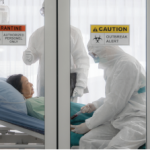Editor’s note (March 23, 2022): In 2022, the Division Directors Conference and Program Coordinators Conference will both be part of ACR Education Exchange, held April 28–May 1 in Orlando, Fla. Registration is now open. New fellowship program directors often step into the role with little in the way of training, resources or mentoring. That’s where…









